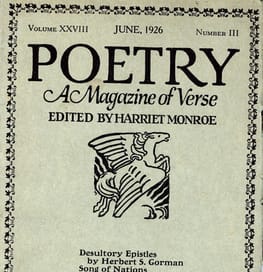One of the aspects I adore about poetry is its invitation into a multivariate mode of knowing.
Allow me to unpack.
We’ll start in the bathroom.
Washing my face this morning, I realized that I have substantially different types of thought depending on how I’m doing physically.
When I am tired and hungry, and when I’ve been confronted with a number of substantial challenges, my thoughts tend to become more acidic and cynical.
After resting, however, I find that my thoughts are generally generative, optimistic and eager to find connection where I’d previously found isolation and division.
Thoughts, then, begin to seem context-dependent, and their content begins to appear somewhat arbitrary.
Poetry, in the mode in which I work (neo-Romanticism), begins to come onto the grid when I am in the appropriate psychic state in which composition can emerge.
This particular state is quite different from others, primarily in that it embodies a consonantly harmonious vision of the interplay of complex ideas.
These ideas are not complex, though, in the sense that they are intellectually rigorous (although they can be that).
Rather, they are complex in the sense that they blend experiences of various ways of knowing.
As you’ve heard me harp here many times, propositional knowing is but one of several ways.
In poetry, we are participating in the cosmos, in our bodies, in our relationships with others (people and other sorts of beings such as trees, insects, and weather patterns).
We are also proceeding in a structured endeavor which offers time and space in which those participations may commence.
A statement is sentenced.
As that suggestion gathers color in the mind of both writer and reader, a new sort of perspective takes form.
This perspective is shared in a context of action and reaction between the two persons (like Ashbery, I don’t feel a poem is complete until it’s read by an other).
If the poem is true, it should have elements which promote this relationship.
It is best if there is an element of melody, syntax which stresses different words and parts of speech in such a way so as to give the reader the experience of something very unique in time which also feels out of time.
This is best if it can be coupled with images, ideas of objects which can be embodied in the mind of the reader.
Much writing, including my own, is wonky.
Especially in my early college writing, ideas were less about the full experience of what McLeish called the “globed fruit.”
Instead, I revelled in linguistic gymnastics, delighting so much in the sound and the gauzy semantics of words that I completely lost the world.
There’s nothing wrong with this in theory.
As O’Hara did in his poem “Three Airs,” this sort of leaping out into the ether can be a delight.
But ether is only one form of being.
O’Hara begins with the poem and ends with the poem.
The poem is best when it starts somewhere, goes somewhere, and resolves into something.
O’Hara’s poem does this, as do all poems which I consider to be effective (read: “strong” or “potent.”)
When I was making my unclasped assertions, it coincided in my life with a mode of being that was mostly about escape.
I was in my 20s, feeling that freedom from having left my native domicile, making decisions of my own and making new friends, moving to cities like Milwaukee and Kansas City.
Nothing wrong with that.
But it always already comes back to the body.
A body can do all sorts of fascinating things, and survive in some extraordinary climates.
Yet for this delicious organism to function in its fascinating blend of flesh, air, and electricity, it must be attended to and cared for.
My theory is that the best poetry takes this into consideration for both poet and reader.
Anti-poems can create an enemy of the reader, but even this is spurred from the condition of knowing that the reader is there (and ironically depends on the reader’s compassion).
I could cite some Whitman, which would be appropriate here.
Instead, in consideration of my previous statements, here’s the aforementioned McLeish poem, which Jonathan Stull showed to me in High School.
Ars Poetica A poem should be palpable and mute As a globed fruit, Dumb As old medallions to the thumb, Silent as the sleeve-worn stone Of casement ledges where the moss has grown— A poem should be wordless As the flight of birds. * A poem should be motionless in time As the moon climbs, Leaving, as the moon releases Twig by twig the night-entangled trees, Leaving, as the moon behind the winter leaves, Memory by memory the mind— A poem should be motionless in time As the moon climbs. * A poem should be equal to: Not true. For all the history of grief An empty doorway and a maple leaf. For love The leaning grasses and two lights above the sea— A poem should not mean But be.
Aspiringly,
Aaron




